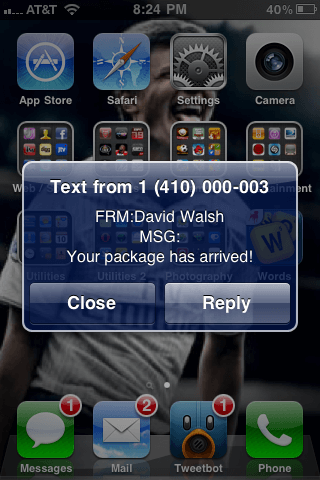Serve a Directory with Ruby
Quickly serving a directory using PHP, Node.js, or Python allows for quick testing with as little hassle as possible. Imagine having to stand up apache or another server just to serve a directory -- gross! Since I had touched the three important languages, I looked to Ruby, a language I have very little experience with.
It turns out that serving a directory with Ruby is as easy as the other languages:
ruby -run -e httpd . -p 8080
The -p argument obviously represents the port, so hitting localhost:8080 will get you to the served directory!
![Send Text Messages with PHP]()
Kids these days, I tell ya. All they care about is the technology. The video games. The bottled water. Oh, and the texting, always the texting. Back in my day, all we had was...OK, I had all of these things too. But I still don't get...
![6 Things You Didn’t Know About Firefox OS]()
Firefox OS is all over the tech news and for good reason: Mozilla's finally given web developers the platform that they need to create apps the way they've been creating them for years -- with CSS, HTML, and JavaScript. Firefox OS has been rapidly improving...
![Color Palette Generator Using jQuery]()
As I continue to learn jQuery, I think it's important that I begin by porting over scripts I've created using MooTools. One of those scripts is my Color Palette Generator script, which debuted on Eric Wendelin's blog. For those of you that...
![Using MooTools ScrollSpy to Load More Items via JSON/AJAX]()




